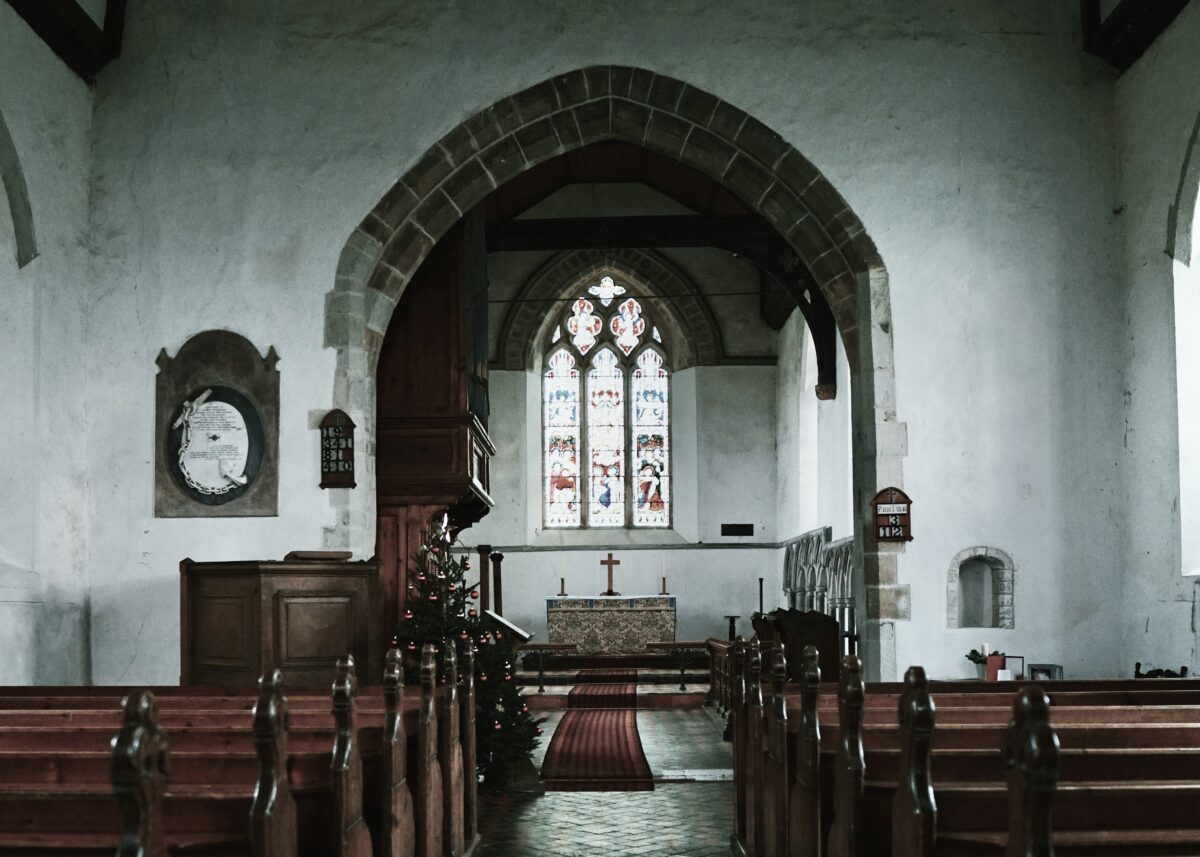
There’s just not a lot of literature on this yet. Every generation has to start over, to deconstruct the religious structures of their time and culture. Modern American Christianity in the 2020s is no different.
We are still adding to our dictionary, tracing our maps, and meeting each other for the first time.
But, fellow seeker, it is happening.
People have been leading the way for decades, discreetly or loudly, and we have their foundations to add to and build on.
My own questioning started about ten years ago in 2014 while I was working as a worship leader at a large church with my husband. By 2018, we had left our positions of leadership and the church entirely.
It has been a long road, but my deconstructed-God, it has been worth every minute of it.
Deconstruction feels like going off the deep end, like sailing over the edge of the flat earth we know and trust. What we don’t know as we’re falling is that we are actually progressing—what feels like a unique and treacherous free fall is actually the first step on a path that thousands have already walked.
I wish I’d known at the time that the free fall and fear and uncertainty was just a part of it. For me, this feeling lasted for a couple of years, and by the time my feet hit the ground, I realized there was an entire camp at the bottom. I was finally at ease.
But when you first sail off the edge? You don’t know what’s waiting for you. I imagine that’s kind of the point, but thanks to the internet, you don’t have to be as alone while it happens.
Here are the three steps I took as I was in the deconstruction free fall that I hope will help you ground quicker than I did.
Get a therapist. Integrating your past is a deeply helpful way to move into your next season of life with clarity and resolve. I have been with the same therapist once a month for almost five years, and while we’ve worked through a lot of my religious baggage, she’s also helped me identify all of the goodness in my upbringing. I didn’t have to deconstruct all of it, in fact, a lot of it makes me who I am in a good way.
The truth is that we each have individual experiences that need to be processed in their own way, and this task should be reserved for you and a mental health professional.
Identify your safe people. Surprisingly (or maybe not?) I found mine at church. We all had the same questions, and our perspectives were shifting. Our paths weren’t identical but they were similar which, for our purposes, is good enough.
If you don’t have anyone in your life that feels safe to walk with, there are more groups online now than ever. The world wide web is a wild west for people like us. We can set up camps, talk around the fire, and fend off intruders with ease. This internet tribe will not only validate your path, but many can walk it with you. I started a deconstruction book club on Substack for this purpose, which leads me to my last suggestion.
Read books. I know your soul is weary, and it’s important you follow your energy on this one—don’t force yourself to take steps that you don’t have the energy for yet. When you feel open to input again, to fresh voices and mystics and “leaders” in this space, start reading. There are more books than you think that will meet you exactly where you are.
If you’re wondering why I think this part is critical, remember you are rebuilding a belief system. You won’t attach to it in the same way, but like Rob Bell always says, there is truth to be learned and lived out, like “it is better to be generous than greedy, it is better to be loving than hateful.” Richard Rohr calls it healthy religion. Even if you never identify as a believer or even as a theist again, there are ways of looking at the world that I found a lot of comfort learning, and without all the books, I wouldn’t be to this point of personal and spiritual health and wholeness. These are a few of the books I always recommend.
It isn’t pleasant, what you’re walking through right now. I’ve been there, and it was such a deep set disorientation and restlessness. My hope is that my words help you feel less alone, less wrong.
You want the depth that comes with opening your heart to uncertainty and mystery. You want to learn without manipulation or fear or feeling controlled. You want a truer experience of your world, your spirituality. That is never wrong.